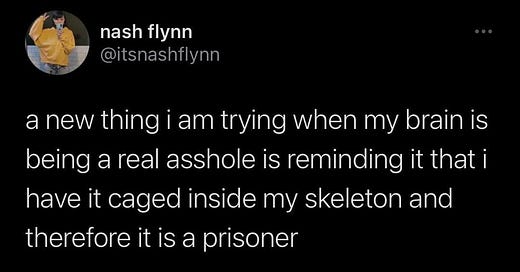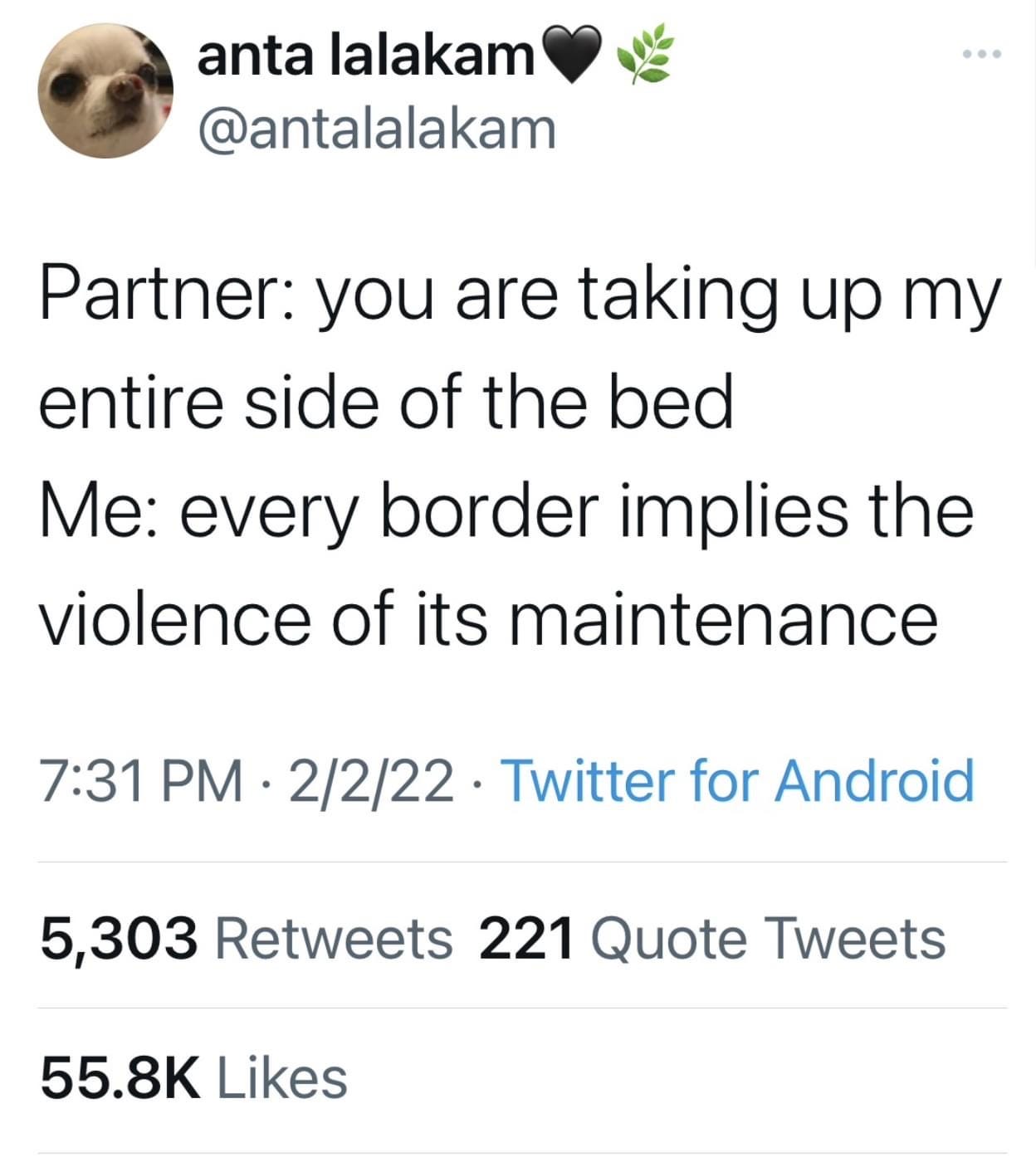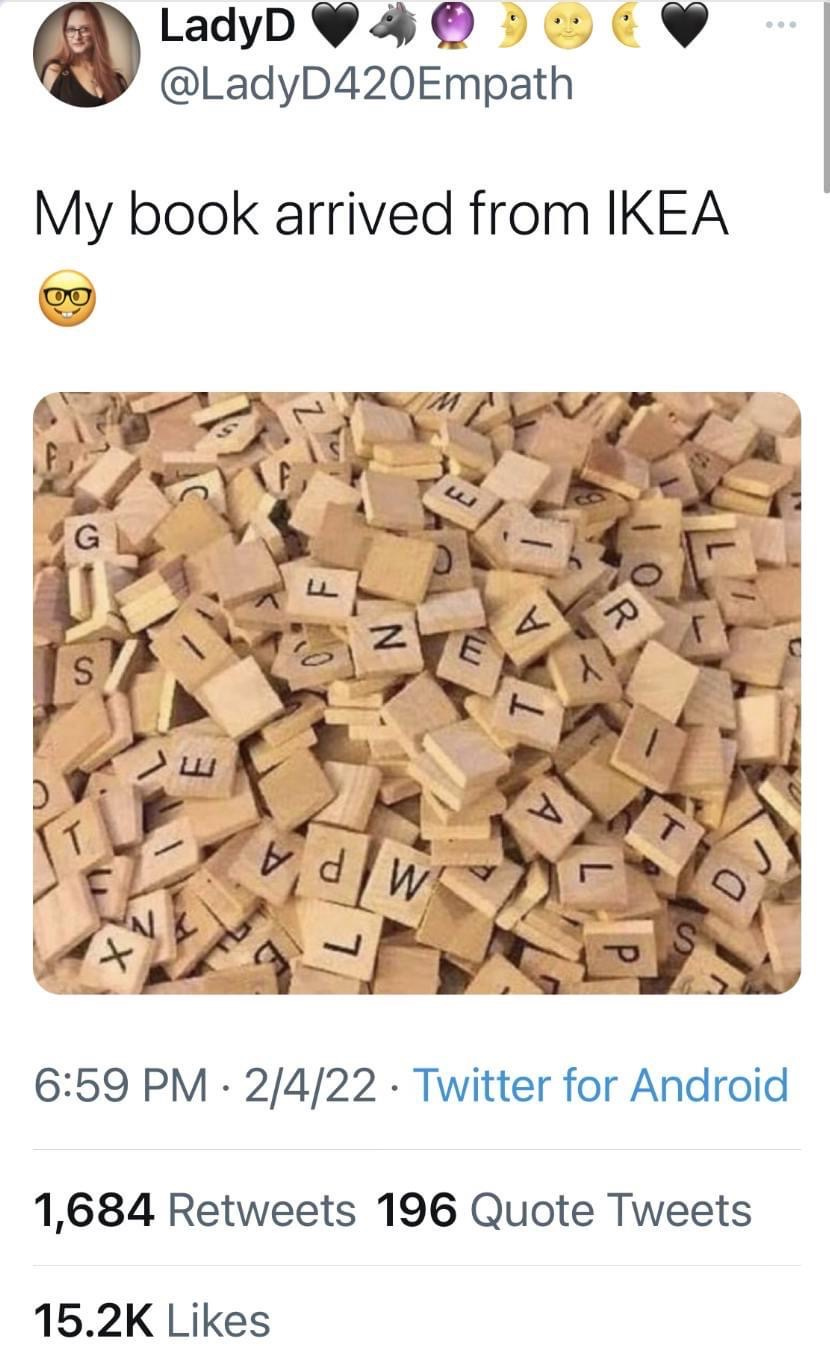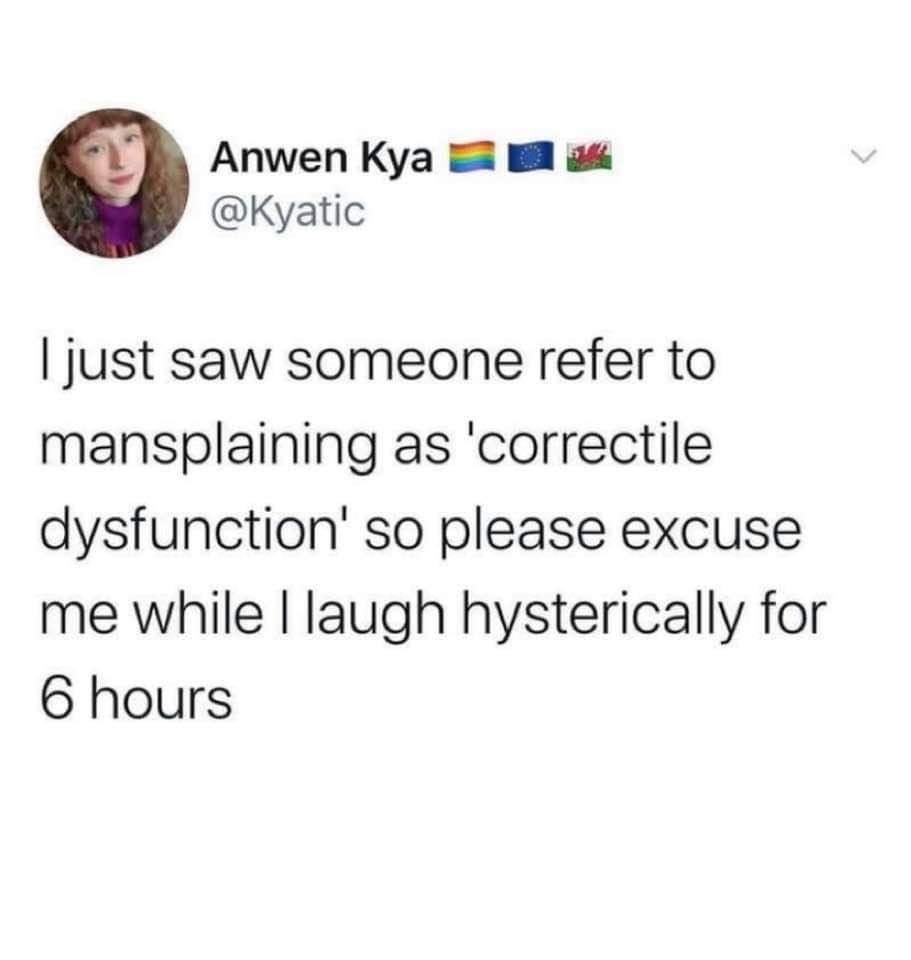In the last two weeks, I’ve started and stopped two pieces. One is titled Unforced Errors and Underutilized People, and the other, Critiquing the Hand That Awards. The first is about a tennis term, “unforced errors,” and how that plays out in kitchens across the U.S. (and also Black Widow, the movie). The other is about the complete lack of due diligence that major award organizations engage in. Both are meaty topics I care very much about. I have clear ideas on what sort of changes I want to agitate for in these spaces. But I am also having immense trouble shoring up the motivation to get these thoughts clearly on paper.
Tema Okun wrote about perfectionism as part of the ideological toll and tactics of white supremacy culture, so I am logically aware of what is going on. Perfect, or nothing at all, is a false binary that contributes to the general epidemic of burnout that we are seeing across the U.S. at large, both in and out of the nonprofits and social justice space. But has being equipped with this knowledge actually changed how I feel? Unfortunately, not really.
Last night, when faced with a sinking realization I was really, really behind on my newsletter deadline, I began to consider why I found myself in this state of burnout yet again. Instead of trying to hobble together a few sentences of appropriately impassioned commentary about how kitchens are poorly designed for most women (starting with countertop heights), I decided to sit with my uncomfortable feelings for a bit and—why not?—jot them down.
It was then a strange, compelling force gripped me and I began to write nonsensical, nonstop scribbles on my Notes app about how pathetically unable I was to even describe this particular feeling. I realized I had never thought it important enough to categorize or evaluate this feeling beyond the catchall term “burnout.” Everyone gets burned out, and I’m not special, is what I would usually remind myself quite sternly in these situations. But isn’t it precisely the prevalence and the intensity—not to mention the current feeling of inevitability—that makes it worthwhile to evaluate burnout a little further?
That was a pretty long lead into today’s piece, which is some self-reflection on the stages of types of burnout I find myself cycling through. If you have some additional versions you’ve experienced to add, please sound off in the comments! As you already know, this whole newsletter is a manifestation of the idea “misery loves company.”
1. Angry-righteous
Anger is almost always the first emotion I respond with when I sense the prickling onset of burnout. Something, or someone, must be responsible for what I’m feeling! This is when I want to rage at the world, and the unending unfairness of it all. At the fact that Los Angeles spent $5 billion constructing a stupid football stadium but has languished in any real solutions to our unhoused crisis. That the same people happy to pay $8,000+ for tickets the Superbowl will complain (loudly!) about having to tip more than 20% at a struggling restaurant. That the effects of colonialism, genocide, slavery, redlining, etc. have resulted in statistics like 69% of Hispanic children, 68% of Asian American children, and 61% of African American children living in areas that exceed EPA ozone standards (which affects their health, school, career, and so forth). And that these injustices are so pervasive, so systemic, and so invisible to those unaffected that no one believe it to be “their” responsibility to even try to fix these issues—even those with literal millions.
(This is typically when I like to pick fights with my partner for being so unbearably white, straight, and male. And so very supportive. That goddamn asshole!!!)
2. Angry-jilted
This is when my burnout anger becomes more specific and personal. We are a tiny nonprofit that is perpetually under-resourced and underfunded! I will rage to myself. No one really understands or appreciates how hard it is to publish a single primer or conduct preliminary research! If the vast majority of people who benefit from our work don’t donate, how the hell are we supposed to keep doing this work? I don’t even get paid*! This is usually followed by a long bout of sulking and competitive eyeing of other nonprofits to see if their cause is as “deserving” as ours. (Did we write an entire toolkit about scarcity mentality? No…)
*I did finally start paying myself as everyone else at the nonprofit last October, after 5 years of working full-time.
3. Fatalist-apathetic
What’s the point of all this hard work if the world is burning and it’s not going to stop? This is generally rooted in some version of compassion fatigue painting any positive action as ultimately futile. In particular, I like to angst how absurd it is that so many individuals, like myself, are attempting to improve things while actively participating in the systems that undermine our larger mission.
The entire concept of philanthropy is hogwash, and nonprofits are just tax shelters for the rich, but here I am smiling and asking for donations so we can “keep marching on!” It’s arguable if DEI programs even work, yet conducting those seminars and workshops constitutes a large bulk of the nonprofit’s income stream. Why keep feeding this pointlessness?
4. Fatalist-hedonistic
Well if the world is going to hell, maybe I should quit while I’m ahead and prioritize me first. I’m very susceptible to Facebook/Instagram advertising at this stage, as my recent purchases of dehydrated smoothies, vitamin C serum, and a weighted blanket can attest. (Shoutout to Common Heir for making my skin very soft, though.)
5. Overwhelmed panic
By this point, I’ve regained some composure and realize that the point of life (as I have decided for myself, at least) is to contribute something to the greater good. I clamp down and start digging a very big hole of work for myself.
After a certain manic period of working nonstop, I realize I have too much on my plate, and I cannot do it all. I shut down and sink into despair, because the situation is hopeless, and the entire fate of the world will undoubtedly go off the rails if I’m unable to fix the nonprofit’s website mobility issues right now.
6. Overwhelmed self-hate
But why can’t I do it all? If I were a more passable human, I could. I then cry about this to my therapist, because look, I’ve mapped it out—if I simply worked 14 hours a day, every weekday and 8 on the weekends, I could feasibly get to all the things on my to-do list. If I stopped taking breaks altogether, I could also channel that time into doing productive things, like completing that knitted scarf for my grandma I’ve been working on for months. I can make all the ceramics! I could practice my Mandarin by watching C-dramas and engage in U.S. pop culture by watching Euphoria and improve my jawline by doing face yoga at the same time.
So why am I instead spending my evenings watching extremely bad TV like Law and Order: SVU when I think we should be abolishing the police?! I’m such a hypocrite!!! Is this capitalism getting to me? Why am I not mentally strong enough to resist? I am weak!!! (My therapist’s response: “Those pesky feelings! So annoying when you have to feel them because you’re not a robot.”)
All of these are very much real forms of burnout I have felt, but none of them fully describe how I’ve been feeling at the moment. When I get to this particular state, the one word I really feel is dispassionate. I am not apathetic, because I care—and a lot at that. I don’t feel sad about the state of the world (though gosh, it is depressing, isn’t it); and while I have a whole lot of work to do, I know I just have to do the best I can with what I have.
So what the hell is it? It feels like my mind is all “up there” and disconnected from my body. It feels like weightlessness, of basking in the inevitability that things will continue with or without me, and most bizarrely, the reality that I can choose to be involved or not. It feels like the cliché near-death scene of every fantasy novel, where the protagonist is at some train/transit station and not sure where to go, because both options feel like some sort of immeasurable loss.
I think the closest thing to describe this would be what David Eng and Dr. Shinhee Han explained as “racial dissociation” in their (incredible, must-read) book Racial Melancholia, Racial Dissociation. While the book explicitly talks about dissociation in racialized settings, I think its applications span much further than that. The definition they work off of, from psychologist Phillip Bromberg, is:
“The loss of capacity for self-reflection, the inability to process emotionally charged mental conflicts, and the disconnection of the mind from the psyche as a (paradoxical) defense to preserve a sense of selfhood and self-continuity.”
Compare that to “adaptive dissociation,” which Bromberg defines as “the ability to feel like oneself while being many” and the “psychic capacity to ‘stand in the spaces.’” Eng and Han further explain that “‘standing in the spaces’ is a shorthand way of describing a person’s relative capacity to make room at any given moment for the subjective reality that [cannot be contained] by the [one] experience [of] ‘me’ in that moment.” (In Bromberg’s words, to “‘stand in the spaces’ [means being] between [opposing] realities without losing any of them.”)
I know that sounded like word salad to me the first time around, so I’ll use a pop culture example I really clicked with recently. If you have seen Matrix: Resurrections (not a good movie, by the way), you may remember this line from Jada Pinkett Smith when her character, Niobe, says to Neo:
“Sometimes you forget just how much noise the Matrix is pumping into your brain all the time.”
I think that’s what fundamentally this kind of burnout is: white noise. But it’s so much noise I can’t actually make out any words, and I don’t know what to do besides disconnect entirely. I notice it most acutely when I find myself observing me, laughing with my coworkers on Zoom, editing with a furrowed brow over a particularly confusing passage about socialism, or delivering what seems like sage advice at a conference — all the while thinking, who the hell is that person?
I don’t think this burnout is quite contained by the statement “going through the motions,” because I am actively participating in those above activities, and I still very much care about the outcomes and impact they have. I just don’t feel connected to any of them. Does that make any sense? I don’t know. All I know is that I’ve been prodding at this term “dispassionate burnout” and I think it fits the bill. Of being disconnected with the many selves I am or want to be, and feeling the only way to weave them together is not to feel at all. And while it may sound objectively logical and productive to move about the world in such a way, I feel so very cold inside.
This is the burnout phase I struggle most with leaving, and in engaging with this writing exercise I’ve noticed that simply acknowledging this reality has been cathartic enough to push me through this burnout far more gently than in previous cases. I wonder if a major contributor to burnout, in general, is the fact we believe it best to deny and ignore how much of the world around us is actually affecting us. Every stage of burnout appears to be some manifestation of my own self saying, I am struggling, please pay attention to me, I am begging you.
I don’t know if anyone else out there is feeling this, but if you are, I hope you read this and know that I see you, friend. Hang in there.
Weekly Meme Roundup
Personal Stuff from the Week(s)
Listening to: Been going through a phase where I listen to Top Hits playlists from the 2010’s (2010, 11, 12, etc.) in ascending order each evening
Watching: Killer and Healer (cringe so far, but trying to muscle through it)
Reading: Children of Blood and Bone by Tomi Adeyemi
Eating: Gently poached, very fresh yellow chicken from Shang Lee. An essay about why freshly-killed chicken is really worth seeking out coming soon*.
*Essay can now be found here.
Drinking: CANN
Nice thing I did for myself this week: Wrote this piece. Honestly.









Oof. Watching cop shows even tho you think the police should be abolished; I felt that. That’s definitely me with all my true crime shows. 😬 Why must the things I enjoy induce guilt?! And it just adds to all the guilt I’m already feeling for avoiding whatever tasks I’m avoiding. 😩 I guess we’re burned out hypocrites together?
Felt this so much, as someone whose “productive” mode is pretty much burnout mode. Been working on it for years (and still working on it!), but daily affirmations about worth not equaling productivity, and mindfulness exercises to keep me in my body and help me notice when I am blazing through my body’s signal to rest, seek joy, eat, or do something that is not work, have helped me. What you said in your point about putting yourself first — yes!! I’ve found (and motherhood really sharpened this for me) that I can only offer my best self to others when I’m rested and self-regulated. Easy to say but SO HARD to put into practice. Sending love to you!